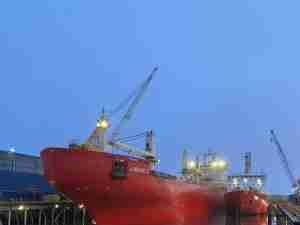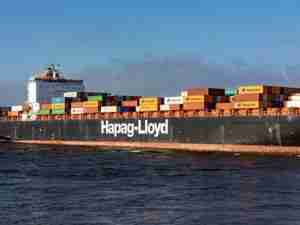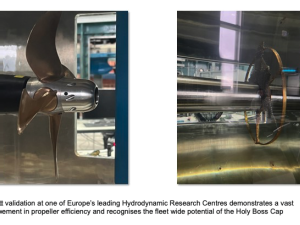Global turmoil hit all areas of shipping hard last year, reversing years of boom and healthy freight earnings.
Marco Vetulli, senior credit officer with Moody's, told Reuters the general outlook for the industry was stable, adding the sector would stabilise at a "low level" this year.
"We think the worst is over," he said in an interview.
"Oversupply is a factor -- that is a problem for all the main shipping sectors and will have an impact on the freight rate environment which will remain fragile during the year."
Vetulli said with major forecasters expecting the world economy to grow by 3.4 to 3.5 percent this year in gross domestic product (GDP) terms and strong estimated GDP growth for China and India at around 9.3 and 7 percent respectively, it created a positive environment for the dry bulk shipping sector.
"Nevertheless, this market now has a strong problem relative to the oversupply," he said. "In 2010 a huge part of the new buildings that are now scheduled will be delivered and that will place pressure on freight rates and will limit substantially the upside potential for this sector."
The Baltic Exchange's main sea freight index, which gauges the cost of shipping resources including iron ore, cement, grain, coal and fertiliser, soared to a record high in May 2008 of 11,793 points, driven by commodities demand from China and India.
Floating Storage
The global downturn and a reduction in demand for raw materials, manufactured goods and consumer products drove it back down to as low as 663 in December 2008. The index has remained volatile since then and reached 3,498 on Tuesday.
Vetulli said the index would remain in a range of 2,000 to 4,000 this year. "I don't think it will go over 4,000 points."
He added that the dry bulk sector was only likely to make a full recovery possibly at the end of 2011.
"It will be a little bit slower because over supply is stronger and also from a financial point of view dry bulk companies tend to be weaker than tanker companies," he said.
Vetulli said forecasts for a recovery in oil demand would be beneficial for tankers but the sector also faced vessel oversupply.
He added that a fall in the number of ships used to store crude oil and oil products would also have an impact on the dirty and clean tanker markets.
"Oversupply and a decrease of these storage activities will limit upside potential for the sectors," he said.
Moody's estimated average rates for very large crude carriers in 2010 at $27,900 a day versus $24,700 a day last year and $34,000 a day on a 10-year average. Earnings are forecast to rise to $38,800 a day in 2011.
"We think the tanker industry will be the first industry to see the light at the end of the tunnel," he said. "We expect a full recovery in 2011."
Vetulli said container shipping would see another negative year in 2010 after being hit by a "dramatic crisis" in 2009.
The global slowdown has battered container lines especially on key routes from Asia to consumers in the West carrying finished goods from electronics to toys.
"We don't think that the market has fully recovered and will take time," Vetulli said. (Reuters)










